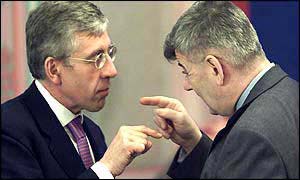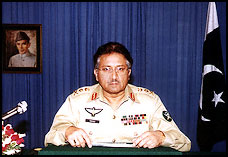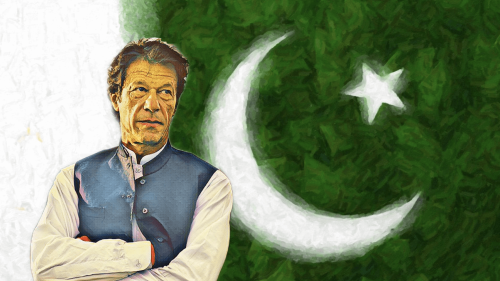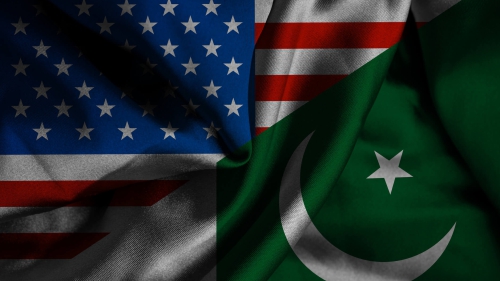Musharraf in a Triple Squeeze
 |
|
German Foreign Minister Joschka Fischer warns US against unilateral action in the war on terror. |
Rapidly, America is running out of sympathy as the moral high ground it stood on after 9/11 is eroded, largely due to Bush's limited understanding of world affairs, and the insane advice he is getting from his cabal of reactionary counselors.
Suddenly, the leader of the 'international coalition against terror' is isolated on a wide range of issues, and is raising hackles in the chanceries of world capitals. From Bush's desire for 'regime change' in Iraq to his demand for Arafat's ouster, the US administration is running into unexpected resistance from its erstwhile partners. And it is not just the substance of American policy that is causing public concern and private fury; what is upsetting even America's closest supporters is the arrogant, take-it or leave-it style that has come to characterize this government's approach to foreign affairs.
In Afghanistan, the latest tragic bombing of a wedding party that inflicted scores of casualties on civilians, it was the American reaction to the incident that was perhaps more shocking than the lethal strike itself. Instead of confessing an error and apologizing immediately, there has been a series of half-lies and attempted cover-ups from a number of spokesmen.
Nobody has even commented on the rules of engagement in Afghanistan under which B-52s and AC-130 Spectre gun-ships can be whistled up to bomb and strafe people without any verification to determine whether they are really hostile.
One wonders whether the Americans would have used the same slap-dash approach if they were conducting military operations in, say, Iceland. This kind of arrogance was on display when the Americans shot down an Iranian airliner in the Persian Gulf in 1988: the captain of the offending destroyer was later promoted instead of being reprimanded. No doubt the pilots of the aircraft who killed the women and children in Afghanistan a few days ago can expect a bright career.
In the aftermath of 9/11, many Americans e-mailed me, asking for an explanation of why they were so hated in much of the world. I tried to explain that since so few of their countrymen bothered about world affairs, their leaders have literally got away with murder abroad.
Trusting to the point of innocence, they seldom question what the State Department and the Pentagon are doing abroad, leave alone the CIA. While very conscious of human rights within America, Americans by and large are not very curious or concerned about violations in other parts of the world, and are therefore prone to accept any explanation the government gives them. The mass media, too, is generally a compliant partner as it seeks to maintain close links with officials at the working level, while the owners jealously guard their corporate ties with the administration for solid, pragmatic reasons.
Many of us were glad to see the destruction of the Taliban; even when there were civilian casualties during the early phase of the campaign, we understood that they were inevitable in the heat of battle. However, now that the Taliban have been deposed and a friendly government installed in Kabul, one would imagine that the Americans would try not to embarrass Karzai as they deal with the remnants of Al Qaeda and the Taliban. To his government's credit, it has been very firm in its immediate condemnation of the bombing, and its rejection of feeble American explanations.
 |
In Pakistan, this incident is bound to give Musharraf's foes fresh ammunition. Yoked by fate to Bush, the general has few options but to go along with the Americans willy-nilly. However each time they inflict further unnecessary 'collateral damage' on Afghans or Bush makes yet another mindless speech about Palestine, Musharraf is bracketed with the American president, thereby being made guilty by association. Indeed, he is in a no-win position as decisions taken in Washington affect him as he is now increasingly seen as Bush's man.
When most Pakistanis stood by him in his initial support for America in the post-9/11 scenario, they did so in the hope that we could use the reversal of our pro-Taliban policy to halt and reverse the Talibanization of Pakistan itself. But Musharraf and his uniformed colleagues continue to draw a distinction between 'terrorists' and 'freedom fighters', thus leaving jihadis outside the dragnet they and the FBI are spreading to scoop up the Al Qaeda elements who have escaped into Pakistan. Thus, apart from some debt relief and fresh credits, we have been unable to reap the political reward of allying ourselves with the Americans.
But the remnants of Al Qaeda in Pakistan and the jihadis do not make the same distinction the government does: they have quickly forged links and are doing their best to destabilize Musharraf through a series of devastating attacks on western targets. They realize that an extended American presence in the region would result in a weakening of extremism, and the sooner Musharraf goes, the sooner the Americans will be forced out. Having lost Afghanistan as a sanctuary, they are now attempting to force a conflict between India and Pakistan that would result in chaos in the latter because such a situation would allow them to operate more freely.
Musharraf is thus caught in a triple squeeze: the Americans are demanding that he go after Al Qaeda and generally crack down on religious extremism more effectively; the fundamentalists from whose ranks the jihadis spring want him to repudiate his pro-American stance and to pursue the cause of Kashmir more energetically; and the Indians are threatening war in case he does not rein in the jihadis. All three sets of demands are inter-linked but cannot be met simultaneously, although Musharraf is promising to deliver on all the three counts.
While carrying on with this high wire act, Musharraf has opened up a fourth front domestically by trying to marginalize the two major political forces through a series of maneuvers of dubious constitutional validity. Instead of surmounting his own personal dislike of Nawaz Sharif and Benazir Bhutto, he even risked the tainted and tortuous route of a referendum to claim legitimacy. This tactic backfired to such an extent that he had to apologize publicly for the rigging that took place.
Two important anniversaries are fast approaching: 9/11 will forever serve as a reminder that even the strongest power on earth is vulnerable to desperate people. For Pakistanis, 12 October, the third anniversary of the coup that brought Musharraf to power, will help us remember that no matter how well-meaning, a dictatorship cannot be a substitute for democracy.
Irfan Husain is a writer for the Pakistani English daily Dawn.
Topics: Afghanistan, Al-Qaeda, Government And Politics, Pakistan, Pervez Musharraf, Terrorism
Views: 2115
Related Suggestions
Regional leadership should understand that the only way out of poverty is stability and long term peace.
Hopefully India and Pakistan can be friends?
I would like to clarify the item regarding the shooting down of the Iranian airliner in 1988. While it was a terrible and regrettable incident, this one item cannot be taken in a vacuum. There is history to consider. Six months before, the USS Vincennes was attacked by Iranian gunboats. One year before the shooting of the airliner, the USS Stark was attacked by a Iranian Mirage fighter, killing 37 American sailors. Intelligence sources indicated that there would be another attack close to the American's 4th of July, so when an unidentified jet crossed the radar screens, tensions were high. The plane was mis-identified as an Iranian F-14, and regretably shot down. Conspiracy theorists within Iran question why that jet was where it was. Some think that it was a sacrificial decoy to cause the Americans to lose face, and be forced out of the Gulf region.
Again, so I am not misunderstood, the incident was terrible, and I agree with the author that promoting the person in charge was in very poor taste. However, there should be context.
Now, Bush's call for the Palestinians to elect a new leader, and his one-sided war tantrums towards Iraq, those baffle me. If he had called for both Arafat and Sharon to be tossed aside for new leadership, that would have been something else. Sometimes I think his advisors play a game among themselves to see who can make him say the most outrageous poorly thought out thing in public.
Walk in Peace

















